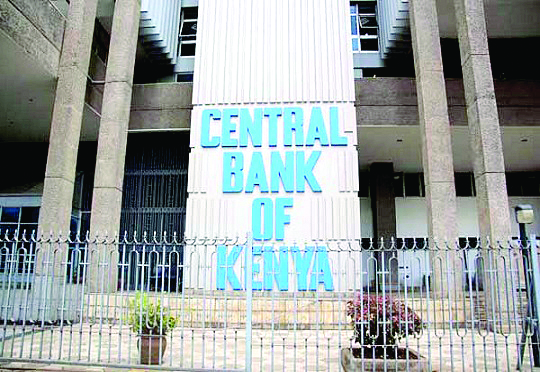KNBS overhauls monthly inflation report for clarity

Kenya’s National Bureau of Statistics (KNBS) is set to transform its inflation reporting framework by introducing core inflation data, a move designed to provide clearer insights into price trends and enhance monetary policy effectiveness.
Principal Secretary for the State Department for Economic Planning James Muhati said this decision comes as policymakers are keen to grasp the core forces behind inflation for more effective economic strategies.
The report will break down inflation into two categories: core inflation, which excludes volatile food and fuel prices, and non-core inflation, which includes these items. This distinction is expected to offer a clearer understanding of underlying inflationary trends and assist in targeting specific areas for policy intervention.
“We are unbundling the Consumer Price Index in order to be able to make it much more transparent and improve efficiency and policy making decision (by the Central Bank of Kenya),” Muhati said.
Historically, KNBS has focused on headline inflation in its monthly releases, which includes volatile components such as food and fuel. These categories are often influenced by external factors, including weather conditions and global commodity prices, making it challenging for the Central Bank of Kenya (CBK) to assess underlying inflationary pressures accurately.
By incorporating core inflation data, excluding these volatile items KNBS aims to offer a more stable measure that reflects persistent price trends. Core inflation is widely regarded as a critical indicator for central banks globally, as it provides a clearer view of inflation’s relationship with consumer income levels. When prices for goods and services rise without a corresponding increase in income, consumers experience diminished purchasing power.
“This disconnect can lead to broader economic challenges, including reduced consumer spending and slower economic growth,” Muhati said.
He said by focusing on core inflation, policymakers can better gauge the long-term health of the economy and implement strategies that promote price stability. He was speaking during the launch of the report at the Treasure yesterday, accompanied by among others, the CBK Governor Kamau Thugge and the KNBS Director General MacDonald Obudho.
The decision to unbundle the CPI into core and non-core categories represents a significant milestone in Kenya’s economic data reporting. This dual approach will allow KNBS to capture the subtleties of price behavior more effectively.
“By distinguishing between a core and non-core inflation, we can better capture the subtilities of price behaviour. This dual approach also provides clearer insights that are essential for shaping effective policy,” Muhati said.
Core inflation will highlight trends that are less susceptible to short-term fluctuations, while non-core inflation will account for immediate price shifts driven by food and energy costs. This comprehensive breakdown is expected to provide deeper insights into inflationary trends affecting households and businesses.
Obudho said in addition to improving data clarity, this initiative underlines KNBS’s commitment to enhancing transparency in economic reporting. Reliable and timely data is essential for informed public communication regarding monetary policy. He said as the CBK relies heavily on accurate inflation metrics to achieve its mandate of price stability, the new reporting framework will empower it to respond more effectively to changing economic conditions.
Thugge said the collaboration between KNBS and CBK in releasing the report reflects a broader trend among central banks worldwide, which prioritize core inflation as a key metric for policy formulation. By adopting best practices in data reporting, Kenya aims to align itself with global standards while addressing local economic challenges, Thugge said.
As Kenya faces various economic pressures, including fluctuating commodity prices and supply chain disruptions, the introduction of core inflation data will be particularly timely. It will enable policymakers to tailor their responses more precisely, ensuring that monetary tools are deployed effectively in addressing both immediate and long-term inflationary pressures.















